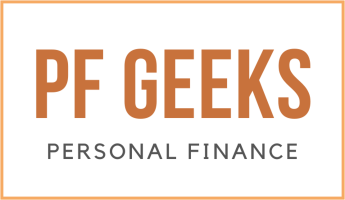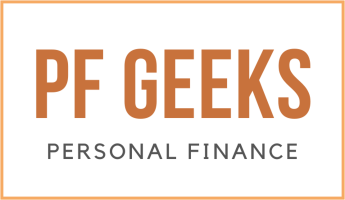Berlin is a vibrant and dynamic city with a diverse population known for its rich culture and history. With the city’s economy growing with the abundance of jobs and start-up opportunities, many people are considering moving to Berlin to start or advance their careers. So, what is a good salary in Berlin?
Contents
What Is a Good Salary in Berlin?
A good average salary in Berlin is between $42,800 to $53,600 per year. This is slightly above the average salary of $44,035 per year. While the average wage in Berlin is lower than that of major German cities, the cost of living is also generally lower.

This means that if you earn a salary in this range, you are likely able to maintain a comfortable lifestyle. However, the salary range may vary depending on your work sector, professional experience, taxes, and qualifications. For instance, professionals with bachelor’s degrees and experience in high-demand fields may command higher salaries.
Factors That Determine a Good Pay in Berlin
Berlin’s economy is growing, and job opportunities are abundant. However, the cost of living, particularly housing, can be high. However, your expenses can vary depending on the neighborhood and lifestyle.
That’s why it’s essential to research the specific industry and company and individual expenses to determine a good salary in Berlin.
Generally, to understand how much you need to earn, you should consider:
- The industry you will be working in
- Education and professional experience
- Location
- Language skills
- The size of the company
Industry
According to data from Glassdoor, the industries with the highest average salaries in Berlin are finance and IT (Such as computer science professionals). For example, the average gross salary for a software engineer in Berlin is $65,000 per year, while the average income for those working in information and communication technology is around $4,669 per month.
Some of the industries with lower average salaries include retail, healthcare hospitality. The average salary for professionals working in retail in Berlin is around $30,000 per year, while the average salary for those working in hospitality is around $32,000 per year, and for healthcare is around $37,500 per year.
Factors such as individual qualifications, experience, and job responsibilities will also inform how much you earn. For instance, a software engineer with a PhD will likely and several years of experience and will likely earn more than a rookie with just a bachelor’s degree. Additionally, the industry growth rate, demand, and supply of the workforce in the industry may also affect salaries in a given industry.
Level of Education and Experience
Educational background and professional experience will play a significant role in determining your wage in Berlin. The average starting salary for entry-level positions is around $32,120 per year. This can vary depending on the specific job title. Having a bachelor’s degree will greatly impact your gross salary.
For technical jobs, the average starting salary is generally higher than for non-technical positions. As you gain more professional experience, you can negotiate for higher salaries and even get promotions. This can lead to a higher gross salary over time.
Additionally, specific industries, such as tech, tend to pay employees with vocational training higher salaries than those new to the field. However, the average gross salary for experienced tech professionals, such as software engineers in Berlin, is around $64,250 per year. This is higher than the average salary for other industries in the city.

Location
Berlin city is divided into different neighborhoods, each with its own unique characteristics and job opportunities. Some neighborhoods are known for their high living standards and high salaries, while others have lower costs with lower salaries. When searching for a new job, I recommend focusing on locations that pay well.
According to Expatica, Neighborhoods such as Mitte, Prenzlauer Berg, and Kreuzberg are considered some of the most expensive areas of Berlin. Professionals working in these neighborhoods earn higher salaries, as the cost of living is also higher.
These areas are also known for their high concentration of start-ups, tech companies, and international firms. In contrast, neighborhoods such as Neukölln and Lichtenberg are more affordable. However, if you work in these neighborhoods, you may earn lower salaries, as life is much cheaper.
Language Skills
Language skills can significantly impact how much you earn in Berlin, as the city is a major international business and cultural hub. Being fluent in one or more languages besides German can open up a wider range of job opportunities and increase your average earning potential.
For instance, professionals who speak German and English are in high demand in Berlin and other cities and can expect to earn around $65,000 to $75,000 per year. These employees are often able to command higher salaries than their monolingual counterparts, as they are able to communicate effectively with a wider range of clients.
Fluency in other languages, such as French, Spanish, and Italian, may also be beneficial as Berlin is a city where many international companies are located. Also, it’s a popular tourist destination, and fluency in additional languages can be an asset for jobs in the hospitality and travel industries.
Company Size
The size of the companies you work with will also likely inform how much you make. Generally, large-sized companies tend to offer a higher salary than medium-sized companies. This is because large companies often have more resources and a larger budget for employee compensation and other benefits.
The average pay in Berlin for a software engineer in a small or medium-sized company is $73,596. The same software engineer role earns close to $104,100 IN large companies. Managers earn close to $96,500 in large-sized companies and expect to be paid $65,000 for small-sized companies.
A larger company may also have a more structured salary range and progression, while a smaller company may offer more room for negotiation. It is important to research the specific company and industry to understand better how a company’s size may affect salary.

Related Questions
Here are some common questions about staying in Berlin and how much you need to earn to afford a comfortable life.
What Is Considered Upper Middle Class in Germany?
In Germany, the upper middle class is a classification of people who have a higher income compared to the average population who are not considered wealthy. To be considered upper middle class, a single household must earn between $3,000 to $5,000 net per month.
Is $90,000 Good Pay in Berlin?
$90,000 is generally an above-average salary in Berlin, Germany. It is above the median salary for most jobs and can allow you to enjoy a comfortable lifestyle in the city. However, the sufficiency of this salary will depend on other factors such as the number of dependants you have and your lifestyle.
Who Is Considered Rich in Berlin?
In Berlin, being considered rich can vary based on the individual’s personal financial situation and the cost of living in their area. However, as a general benchmark, a monthly household income of around $10,000 would likely place someone in the upper section of earners and could be considered wealthy.
Conclusion
Being one of the most luxurious cities in the world, Berlin can be expensive. That is why you need good money to survive here. The salary you will need to live comfortably in Berlin, Germany, depends on several factors such as living standards, taxes, lifestyle, and personal financial goals. Ultimately, whether or not a salary is good will depend on how well you are with your money.

